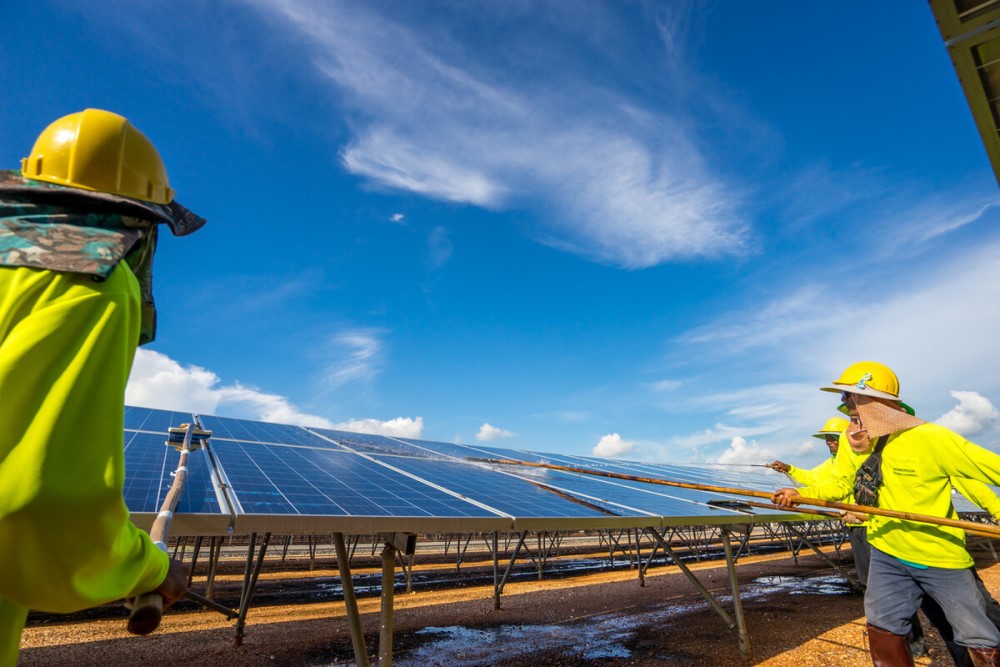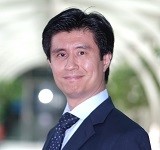
A solar power project in the city of Bavet has paved the way for private solar energy developers in Cambodia by creating a template for bankable projects. It was the first utility-scale solar power plant and the first competitively tendered renewable energy project with an independent power producer in the country. The project offers lessons for mobilizing and de-risking private investment in renewable energy in frontier markets.
Cambodia has made much progress in increasing access to electricity. Electrification rates reached 81% of households by 2020 from only 24% in 2011. Making electricity more affordable, however, remains a challenge. Despite government’s efforts to reduce costs for consumers, electricity rates in the country are still among the highest in Asia because of lack of supply and dependence on expensive fossil fuel-based generation.
Increasing renewables in the energy mix, particularly solar, is expected to lower electricity costs further, increase supply to meet rising demand, and support national climate commitments under the Paris Agreement.
Overcoming investment barriers
The country has strong solar energy potential. It has some of the highest irradiation levels in Southeast Asia with an estimated technical potential of more than 8,000 megawatts (MW). A UNDP report estimates the potential private sector investment in solar photovoltaic (PV) projects at $903 million. However, there are barriers and associated risks that can hold back investments. These include the lack of long-term project finance and the lack of credit appraisal skills for renewable projects.
The Cambodia Solar Power Project, which built the 10-MW solar power plant in Bavet, Svay Rieng Province, demonstrated that a competitively auctioned, privately developed, utility-scale solar plant was both viable and affordable for Cambodia’s consumers. In February 2016, state-owned utility Electricité du Cambodge issued its first large-scale tender for solar power. A consortium led by Sunseap, a leading solar developer from Singapore, won the bid with a highly competitive tariff of $0.091 per kWh, which is much lower than average tariff rates of $0.30 per kWh in the country.
The Asian Development Bank (ADB) put together a $9.2 million debt package to finance the project. It included cofinancing from a private sector financial institution through ADB’s B Loan program and a concessional loan from the Canadian Climate Fund for the Private Sector in Asia, which was created to help private sector-led projects surmount leading edge technology risks and cost hurdles. The loan from the climate fund was instrumental in helping the solar energy developer in Bavet overcome some of the early mover risks and cost premiums associated with a first-of-its-kind project.
The solar power project was structured as a public–private partnership (PPP). The project company entered into a 20-year solar power purchase agreement with Electricité du Cambodge, which included a take-and-pay commitment of up to 16 gigawatt-hours (GWh), set a fixed tariff of $0.091 per kWh, and provided for risk mitigation and dispute resolution. No government guarantees were given for the power purchase agreement.
Project results and lessons
The power plant started commercial operations in October 2017. It proved to be an innovative solution for Svay Rieng Province, which had seen rising power demand from local industry, but was still disconnected from the national grid and dependent on electricity imports from Viet Nam. The project improved the quality and reliability of power supply for households and businesses in Bavet, which suffered from frequent outages during the summer season when local hydroelectric plants typically run at low capacity. It also lowered the electricity purchase costs for Electricité du Cambodge, which brought down the rates for power consumers, and reduced electricity imports and greenhouse gas emissions by replacing fossil fuel-based generation with solar energy.
The project helped prototype contractual arrangements for private investment in utility-scale solar projects that feed power into the grid. Its implementation clarified multiple contractual and institutional issues, helped build technical capacity in the state power utility, and established a competitive bidding process for utility-scale PV projects. The project structure and power purchase agreement were replicated in larger solar projects in the country.
Investor interest in the sector increased after the project was commissioned. In 2019, the competitive auction for the first 60 MW of the 100 MW National Solar Park Project in Kampong Chhnang Province drew several global companies as bidders and set a record low tariff of $0.0387 in Southeast Asia at that time.
The Bavet project showcased the role of concessional finance in promoting investments in renewables in a frontier market. ADB secured concessional finance that allowed the project to attain minimum debt service cover. ADB raised a 14-year B loan from a commercial bank (BRED Bank), which was not available from Cambodian banks before the project. ADB expects this transaction to give this bank the confidence to finance other renewable energy projects in the country.
The project generated insights for scaling up renewable energy adoption in the region as well as lessons for future solar PV projects and their investors and developers.
 Featured Expert
Featured Expert
Shuji Hashizume
Unit Head, Structured Projects
Asian Development Bank
Shuji Hashizume has more than 15 years of experience with ADB. Based in Bangkok, he is currently in charge of private-sector infrastructure financing opportunities across Southeast Asia and the Pacific, with focus on complex, structured projects. As an experienced infrastructure finance expert, he has led financing of a number of milestone transactions, including a regional blue loan for PET recycling; large-scale solar power projects in Viet Nam; mass rapid transit lines in Bangkok; first utility-scale solar power project in Cambodia; and first international-standard IPP project financing in Myanmar.
A national of Japan, Shuji obtained his master's degree (MPA/ID) from Harvard Kennedy School, USA; master of engineering in civil engineering from the University of Tokyo, Japan; and bachelor in engineering (civil engineering) from the University of Tokyo. He is also a CFA charterholder.

